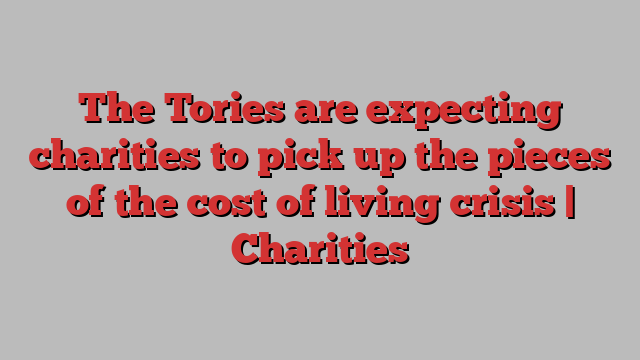
Your leader could not have been more timely (The Guardian view on charities and the cost of living crisis: overwhelming needs, 26 December). As 2022 gives way to 2023, so the 80th anniversary of William Beveridge’s social insurance blueprint gives way to a different milestone, that of the 75th anniversary of his later report on voluntary action. Both anniversaries should prompt an opportunity to review and reshape our country’s strategy for countering poverty and destitution.
There will remain in each community a vital role for charities, such as affordable food clubs. But such efforts can only be truly effective in preventing that suffering if the people they serve have adequate household incomes to cover life’s essentials. Right now, all too many people do not – partly due to benefit deductions and sanctions.
Next year also marks a decade since the creation of an all-party parliamentary inquiry into hunger in Britain. The inquiry called on ministers to bring together the two parts of Beveridge’s reforms that harness the virtues of public and voluntary action. As your leader highlights, the need for such an approach is now critical.
Andrew Forsey
London
Your leader on the state of the voluntary sector makes the point that at just under £60bn, charities make a significant contribution to our society.
Despite this, they do not receive the support or attention they deserve from the government. They are represented by a junior minister whose portfolio includes sport, youth and tourism. He does not attend cabinet.
Many people are probably under the impression that the Charity Commission is engaged in help and support to the sector. Examination of the commission’s current statement of strategic intent reveals that it is mostly concerned with policing and holding charities to account. Two, and arguably three, of their five objectives are about this. Of course charities need to be kept on the straight and narrow, but they also need support and championing. The commission does admit, however, that it “has limited capacity to engage in influencing government policy or stimulating public debate about charity”.
The work that charities and not-for-profits do is vital to millions of people, yet they appear friendless and unsupported where it matters. Is it not time that the voluntary sector has a minister dedicated solely to promoting its interests?
Peter Curbishley
Great Durnford, Wiltshire
This government’s acceptance of the range of charitable services providing relief to poor people, including food, clothes and bed banks, is consistent with their social and economic policies. During the last 12 years, the Conservatives have succeeded, in effect, in ending state universal benefits and by doing so keeping the minimum wage at levels that still result in many being dependent on benefits and charity. And even though these charities do all they can to reduce the indignity of those seeking help by sensitive processing, the wider context is deterrence of dependency, as distinct from entitlement to meeting living requirements as a right.
Finally, raising universal credit to meet living standards without charitable aid would not only increase wage levels but potentially open the door to challenging the inequalities that underpin the current cost of living crisis. How would Keir Starmer’s Labour party respond?
Prof Mike Stein
University of York